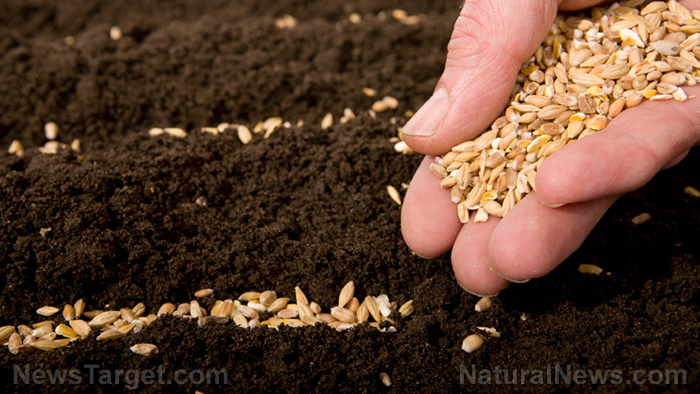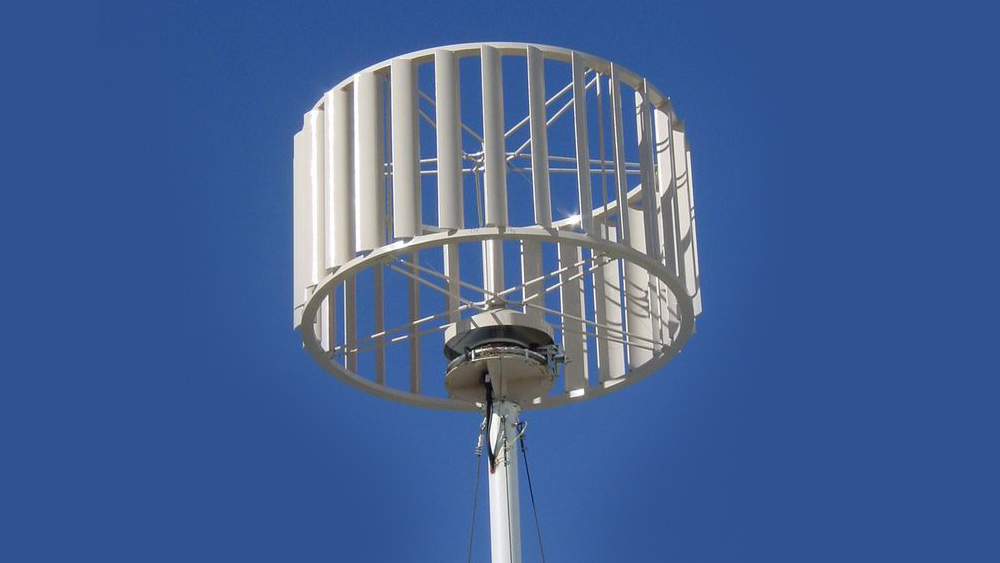“Greenhouse in a box” helps small farmers in India protect crops from extreme weather conditions
03/23/2021 / By Zoey Sky

Small farmers in India often struggle to make ends meet because their livelihood isn’t the most rewarding. In fact, some farmers regularly deal with various obstacles like debt and inclement weather for meager pay.
But all this can change, thanks to Kheyti’s “greenhouse in a box,” the name for innovative greenhouses that were designed to be accessible and affordable for small farmers in the country.
Kheyti is a Hyderabad-based startup that aims to help small farmers in India who are struggling with crop maintenance amid harsh weather conditions. The group’s efforts have also attracted the attention of Acumen, a U.S.-based impact investment firm.
Loan sharks and farmer suicides
In India, desperate farmers commit suicide to escape from debts to loan sharks. Early in January, farmers demanded an end to new laws that threaten their livelihoods and might cost more lives.
Protests throughout Punjab also spread across the country as farmers called for a complete rollback of the three laws passed back in September 2020. These laws “deregulate the buying and selling of agricultural goods,” which means farmers are left vulnerable to the uncertainties of an open market.
Corporations can also exploit small farmers in the country because of these laws.
At the same time, there is a record number of farmers in India who are committing suicide. Experts have warned that the farming laws may be the straw that breaks the camel’s back.
More than 40 percent of India’s population earns a living through farming. But as the coronavirus (COVID-19) spread across India, farmers have helped keep the country’s rural economy survive.

Unfortunately, most farms are small, family-run operations that depend on loan sharks who are often ruthless.
India has some of the highest farmer suicide rates in the world. Data suggests that the country has more than 10,000 deaths recorded annually. The numbers are also expected to have reached a record high in 2020.
In Punjab alone, three to four farmer suicides are reported in the local news daily.
A box full of hope
Gardeners and farmers in developed countries struggling to grow crops can use a greenhouse to improve their harvest. After all, using a greenhouse reduces the water and pesticides you need to only one-tenth.
At the same time, a greenhouse can significantly improve crop yield.
However, not everyone can afford a greenhouse since they require an upfront investment that often makes them inaccessible to people who need them the most, such as small farmers in India who rely on rain or borewells. To address this widespread concern, Kheyti worked on a minimalistic greenhouse that meets both the needs and limitations of small farmers.
To meet their goals, Kheyti collaborated with manufacturing and design companies to develop the greenhouse in a box, a modular greenhouse kit with a drip irrigation system that only measures a tenth of an acre.
Each kit costs less than 100,000 rupees ($1,364.30), which is cheaper than regular greenhouses for large farmers. At least 500 farmers in Telangana are testing Kheyti’s greenhouse in a box, including the appropriate seeds and fertilizers.
Developing the greenhouse in a box
Kaushik Kappagantulu, co-founder and CEO of Kheyti, shared that the idea for the mini greenhouse started in 2017 at a 1.8-acre farm in Narayanpur village, located 60 k.m. north of Hyderabad.
Kappagantulu talked about Venkatesh, a farmer who grew rice and some vegetables with his wife Lakshmi.
While the couple worked hard, their annual income of 30,000 rupees ($409.29) wasn’t enough for their family of five. The couple struggled to make ends meet because even though they had 1.8 acres of land, they couldn’t fully utilize it as their borewells often ran dry during summer months.
Kheyti first set up a Research and Development (R&D) farm on the outskirts of Hyderabad to demonstrate their greenhouse to small farmers.
Venkatesh was one of the first to visit the R&D farm. When the startup showed Venkatesh how to grow high-quality vegetables with better yields, the farmer had one question: How much water does it require? (Related: Homestead must-haves: 4 Off-grid amenities for your property.)
Venkatesh was told that to use the Kheyti greenhouse, he only had to run his borewell pump for only five minutes, unlike the one hour’s running time for his open field. Because of the greenhouse’s reduced water requirement, he was convinced to sign up immediately.
But there was one obstacle. While the 500,000 rupee ($6,821.50) Kheyti greenhouse was relatively affordable, it was still too much for small farmers such as Venkatesh.
To help small farmers, Kheyti set out to develop the greenhouse in a box, which was “even smaller and more affordable.”
Farmer feedback helped Kheyti improve the greenhouse in a box
According to Kappagantulu, Venkatesh continued to give the startup valuable feedback that helped them improve the next version of the greenhouse.
Kheyti currently offers a 400 sq. m greenhouse for 80,000 rupees ($1,091.44) that comes with insect netting, shade netting and polyethylene sheets that helps protect crops from pests, heat and excessive rain. The kit is significantly more affordable than a one-acre (4,047 sq. m) greenhouse that costs about 250,000 rupees ($3,410.75).
Kheyti also offers cheaper versions of the mini greenhouse that were also developed with feedback from small farmers.
Other products include a greenhouse whose height could be reduced for vegetables like brinjal, cucumber and tomato grown in the region. Making a smaller greenhouse also helped cut the cost of the kit by at least three percent, added Kappagantulu.
Kheyti’s partnership with Acumen
Kheyti’s efforts to help small farmers eventually caught the attention of Acumen.
Mahesh Yagnaraman, Acumen’s India director, explained that most agritech funding has gone to platforms connecting buyers and sellers, but these efforts don’t directly show how much farmers benefit from them.
Not a lot of investments are being used for startups that focus on helping smallholder farmers. Acumen chose to back Kheyti since the group has made it clear that their priority was to increase small farmer income, which is also the firm’s “core thesis.”
Kappagantulu and Sathya Raghu, two of Kheyti’s founders, met during an entrepreneur fellowship program at Acumen earlier.
Kappagantulu gave up an investment banking job to pursue social impact ventures after graduating from the Indian Institute of Technology Kharagpur. Meanwhile, Raghu already had experience with an agritech venture.
The idea for Kheyti was eventually formed after the founders met with farmers in Telangana, Karnataka and Maharashtra for six months. The farmers had one common problem: No matter how hard they toiled, their efforts were often wasted because of inclement weather, which could be resolved with innovative greenhouses.
Yagnaraman remains hopeful even though Kheyti still faces another hurdle while scaling up, arranging finance to help more farmers. Kheyti is in talks with Samunnati, an agricultural finance startup, and the mainstream Bank of Baroda.
Kappagantulu noted that getting the two groups to work with the startup was a much-needed breakthrough. But Kheyti still has more to do because more small farmers need their help and “the loans are still slow to come.”
For 2021, Kappagantulu concluded that Kheyti is focused on developing a “scalable model of financing.”
Visit Harvest.news to read more articles about sustainable methods of improving crop yields.
Sources include:
Tagged Under: Acumen, environment, gardening, green living, greenhouse in a box, homesteading, India, innovations, Kheyti, organic farming, small farmers, sustainable living, Telangana





















